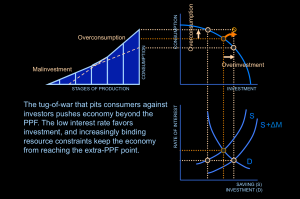A couple of weeks ago Tom Clougherty of the Adam Smith Institute and I addressed a senior group of Chinese officials from Beijing. We talked about Europe’s financial crisis and did not pull any punches. Rather surprisingly our Chinese guests did not balk at our analysis or overly disagree. Instead they entered into a spirit of dialogue that might best be described as ‘expectant resignation’.
Last week, I found myself addressing more than 100 A Level Economics and Politics students at an ISOS conference in Westminster. TCC’s Dr. Jamie Whyte was also present and spoke particularly well in a follow-on debate. What was interesting about that day was how well the students took to the idea that the current economic crisis is not a product of market failure in any meaningful sense but rather state failure and the political economy of interventionism – particularly in areas such as money and banking.
This coming weekend I am addressing a major conference in Estonia where I will be delivering a similarly robust Cobdenite message. I have no idea how I will be received but the fact that I have been invited and that TCC’s ideas are on the agenda is heartening.
Now, however tiring one might occasionally find public speaking that fact that it so prominently features in my life does bring powerful psychic rewards. Very few things in life can be so rewarding as to constantly meet lots of new and interesting people, debate important ideas with them and through them remain open and alive to new perspectives. While members of the audience might get something from it, I certainly do. Wonderful.


(Do you mean ‘psychological’? Or are you reading their minds?)
The dictionary on my computer has three definitions for ‘psychic’ (adjective). The second one is
“of or relating to the soul or mind”
Tim’s use may be archaic, but it is not incorrect.
The term “psychic rewards” is part and parcel of a subjectivist understanding of value – think about it in terms of externality arguments etc. I’d argue that Tim’s use is neither archaic nor incorrect!